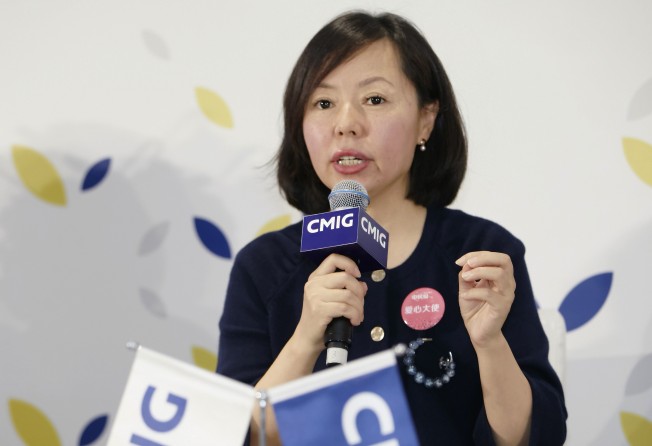
Minsheng Investment seeks bigger slice of market for services for China’s rapidly ageing population
The investment firm plans to double to amount of residential space for the elderly that it manages in the coming few years

China Minsheng Investment Group (CMIG) is bucking the trend of building senior living projects as the country’s population ages, and is instead looking to manage more residential properties to seek a bigger slice of the market for care for the elderly.
Mainland China’s largest non-state investment conglomerate said it would introduce new technologies, raise fresh funds and expand its service network to build a chain of senior care businesses in a market expected to top 13 trillion yuan (US$1.97 trillion).
Wang Hui, a vice-president of CMIG and chairwoman of its subsidiary CMIG Futurelife, a residential community service provider, said the company aims to manage 1.8 billion square metres of residential properties across China in the next few years, more than double the current space of 700 million square metres.
“Having a vast number of property projects under our management will lay a solid foundation for us to better develop senior care services in communities,” she told the South China Morning Post. “Financial, insurance and health care services will be melded into our business platform.”
Mainland China’s population of retirees aged above 65 is estimated to hit 330 million by 2050 from 110 million in 2010, a rate of ageing much faster than many developed economies, according to the World Health Organisation.
The market for elderly care in China is now worth about 4 trillion yuan, according to Wang.

CMIG Futurelife currently manages residential properties in 155 cities in China. About 20 million people are living at the communities under its management and it will eventually serve 60 million residents after the planned expansion.
Wang said her company would build facilities at each community offering financial, entertainment, catering, medical and nursing services.
“In the long term, we want to make better use of business data generated from our property management businesses so as to help the company extend its reach to every household that needs senior care services,” she said. “An ecosystem will be created for senior residents, insurers, nursing services and other organisations, and it will benefit all of them.”
Founded in 2014, CMIG was the brainchild of Premier Li Keqiang and it has singled out senior care as one of its main businesses amid China’s quick pace of ageing.
Top Chinese property developers, including China Vanke, Greentown, Evergrande and Sino Ocean Land, are increasing investment in senior living projects to boost the number of nursing homes, hoping to profit from the fast-growing market.
But analysts said China’s need for senior care beds may have been overestimated.
There were about 4.7 care beds for every 100 people above 65 at the end of 2015, compared with five in Japan and 5.9 in the US, according to DBS.
Beijing planned to increase the number of beds to as high as 5.9 for every 100 elderly citizens by 2020, more than enough for the small numbers of people willing to pay for one.
“Community senior care services make sense because to take good care of the older generation, it is important to organise more activities to make a happy life for them,” said Xu Jialiang, a professor of public affairs at Shanghai Jiao Tong University.
“China also needs to liberalise the finance sector to develop more trust products to support the growth of senior care.”